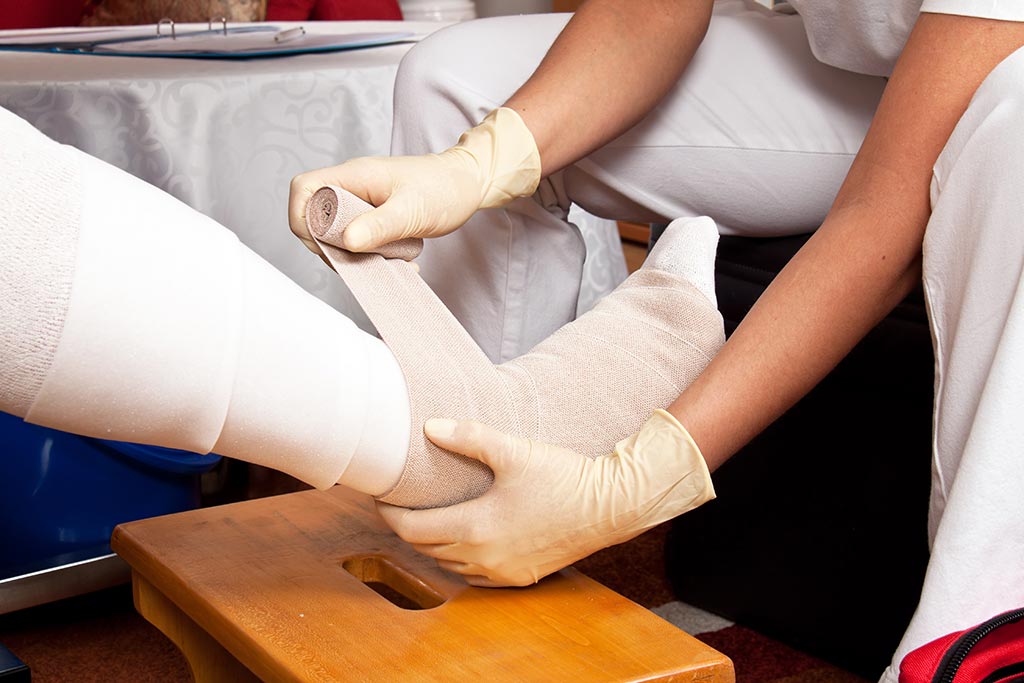All You Need to Know About Wound Care for Seniors
Wound care for seniors can be complicated, especially if they are battling diseases such as cancer or diabetes. We’ve provided this useful guide to wound care for seniors, where we’ll look at the 5 principles of wound management. We’ll also examine how diabetes and cancer can affect wound healing.
Does Cancer Affect Wound Healing?
Can cancer cause delayed wound healing? Yes, which is why it’s so important that your loved one receive care at a skilled nursing facility in Winnabow, NC.
Radiation and chemotherapy slow wound healing because these treatments affect how efficiently your body can heal itself. While radiation treatment kills cancer cells, it can also destroy healthy tissue. While innovations have been made to minimize the damage to healthy cells, inevitably, some get destroyed.
Cancer can also impair your immune system. Impaired immune systems and poor nutrition—whether due to nausea or other factors—can prevent wounds from healing properly.
Does Diabetes Affect Wound Management in Seniors?
Yes. Those with diabetes often have trouble with nerve damage and circulation, particularly in their feet. Therefore, those with diabetes can injure their feet and not be aware of it. If not treated in a timely manner, foot ulcers or other wounds can fester and become infected.
If the infection is not contained and if the wound cannot heal, those with diabetes are at risk of amputation.
What Happens When a Wound Doesn’t Heal?
When wounds don’t heal, you’re at greater risk of developing an infection. When this occurs, your body is more likely to fight the infection instead of healing the wound. In extreme cases, non-healing wounds can lead to necrosis. Necrosis occurs when your body tissue dies.
If your tissue dies, it could result in the need for amputation.
What Are the 5 Principles of Wound Care for Seniors?
Wound care for seniors centers around 5 main principles of wound management. We’ll briefly review them below.
1. Assessments to See if There Are Any Diseases
The wound must be carefully examined to see if there is an infection. This should also take into consideration underlying diseases—such as diabetes—that may make it difficult for the wound to heal,
2. Wound Cleansing
Cleaning a wound properly is vital to prevent infection. This includes disinfection, irrigating the wound with saline, and removing any dead tissue (also called debridement).
3. Timely Dressing Changes
Your doctor will determine when and how often your dressing should be changed. It’s important to protect the wound from the environment and to keep it from being soiled with body fluids.
4. Appropriate Dressing Choice
We work with your doctor and your health care team to determine which dressing is most appropriate for your wound. Researchers are continuing to design innovative dressings that optimize each stage of healing. These also target bacteria to prevent infection.
5. Possible Antibiotic Prescription
If your physician or health care team is concerned that your wound is infected or may become infected, a course of antibiotics may be prescribed.
How We Manage Wound Care for Seniors at Brunswick Cove
One of the advantages of our skilled nursing facility in Winnabow, NC is that we are staffed with nurses 24/7/365 who are always on hand to help your loved one. We work closely with physicians and all members of the health care team to provide the best care.
We’re particularly aware of the importance of managing wounds and monitoring them carefully. Our nursing care means that you can seek wound care services here, instead of having to go to an outpatient wound care clinic.
Brunswick Cove Can Help Your Loved One Who Is at Risk for Non-Healing Wounds
If your loved one is facing the challenges of diseases such as diabetes or cancer, they are at risk of developing a non-healing wound. The key to treating these wounds is immediate intervention, daily monitoring and working with doctors and other members of the health care team.
At Brunswick Cove, we’re dedicated to helping your loved one avoid the complications from non-healing wounds.
Did you know your loved one may qualify for 20 days of free care? Take the next step and contact us to see if you’re eligible.

